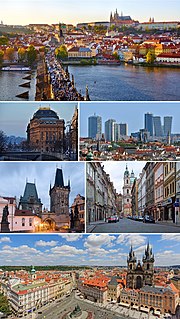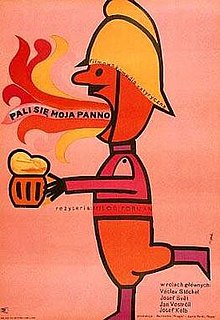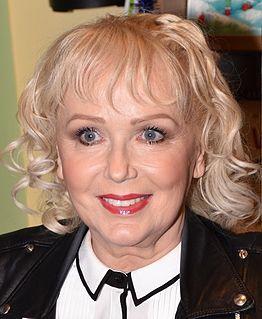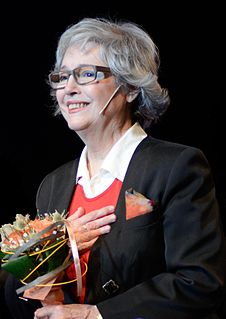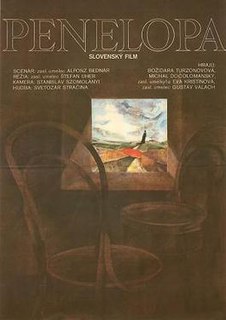| She Grazed Horses on Concrete | |
|---|---|
 DVD | |
| Directed by | Štefan Uher |
| Written by | Short stories: Milka Zimková Screenplay: Milka Zimková Štefan Uher |
| Starring | Milka Zimková Veronika Jeníková Marie Logojdová Peter Staník Ľubomír Paulovič |
| Music by | Svetozár Štúr |
| Cinematography | Stanislav Szomolányi |
| Edited by | Maxmilián Remeň |
Release date |
|
Running time | 78 minutes |
| Country | Slovakia Czechoslovakia |
| Language | Slovak |
She Grazed Horses on Concrete (Slovak : Pásla kone na betóne) is a film which lays out serious topics that include a woman's capacity to hold her own in society, sexual mores, and abortion, and balances them with comedy and irony [1] in proportions that instantly made it one of the biggest domestic blockbusters in Slovak cinema. [2]

Slovak or less frequently Slovakian is a West Slavic language. It is called slovenský jazyk or slovenčina in the language itself.
The cinema of Slovakia encompasses a range of themes and styles typical of European cinema. Yet there are a certain number of recurring themes that are visible in the majority of the important works. These include rural settings, folk traditions, and carnival. Even in the field of experimental film-making, there is frequently a celebration of nature and tradition, as for example in Dušan Hanák's Pictures of the Old World. The same applies to blockbusters like Juraj Jakubisko's A Thousand-Year Old Bee. The percentage of comedies, adventures, musicals, sci-fi films and similar genres has been low by comparison to dramas and historical films that used to include a notable subset of social commentaries on events from the decade or two preceding the film. One of them, Ján Kadár's and Elmar Klos' The Shop on Main Street, gave Slovak filmmaking its first Oscar. Children's films were a perennial genre from the 1960s through the 1980s produced mainly as low-budget films by Slovak Television Bratislava. The themes of recent films have been mostly contemporary.
Contents
A quarter of a century later, its DVD release sold out within weeks. The film, directed by the reputed Štefan Uher, made the women at its center stage stand for humankind as matter-of-factly as much of Central European filmmaking had been portraying men's worlds, the quiet turnaround never even became a talking point. It was also the first film that employed a regional variety of the language that would be naturally used where the story took place, [3] which provided an additional layer of humor whose novelty had people rolling in the aisles.
Štefan Uher was a Slovak film director, one of the founders of the "Czechoslovak New Wave".

Central Europe is the region comprising the central part of Europe. It is said to occupy continuous territory that are otherwise conventionally Western Europe, Southern Europe, and Eastern Europe. The concept of Central Europe is based on a common historical, social and cultural identity. Central Europe is going through a phase of "strategic awakening", with initiatives such as the CEI, Centrope and the Visegrád Four. While the region's economy shows high disparities with regard to income, all Central European countries are listed by the Human Development Index as very highly developed.
Its baffling title quotes a verse from a fresh folk song about a woman striving to accomplish impossible feats. Attempts to render it in English resulted in the film being shown and quoted under a range of titles that have included She Kept Crying for the Moon, She Kept Asking for the Moon, A Ticket to Heaven (also the erroneous A Ticket to the Heaven), and Concrete Pastures.
The film was entered into the 13th Moscow International Film Festival where it won the Silver Prize. [4]
The 13th Moscow International Film Festival was held from 7 to 21 July 1983. The Golden Prizes were awarded to the Moroccan-Guinea-Senegalese film Amok directed by Souheil Ben-Barka, the Nicaraguan-Cuban-Mexican-Costa Rican film Alsino and the Condor directed by Miguel Littín and the Soviet film Vassa directed by Gleb Panfilov.


